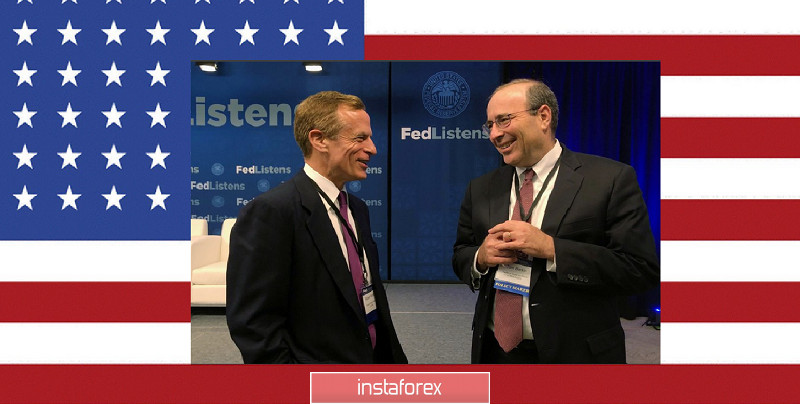
Fed officials argue that the US economy needs a lot of stimulus in order to weather the current recession.
Calls for more government intervention came after US lawmakers and the White House resumed talks on a new government aid package, including a possible extension of unemployment benefits that expired on Friday.
"It would be quite a traumatic move to quickly drop the support that consumers and businesses are receiving," said Richmond Fed President Thomas Barkin.
This opinion, albeit in a slightly different expression, was shared by Dallas Fed President Robert Kaplan and St. Louis Fed President James Bullard. Kaplan dismissed the idea that the additional $ 600 weekly unemployment benefits have made things more difficult for businesses, and Bullard said that earlier efforts to preserve the integrity of businesses and households during the crisis have paid off.
"We looked at a number of studies and saw no problem getting people back to work with benefits," Kaplan said on Monday, answering the question of whether the enhanced unemployment assistance is preventing people from returning to work.
Kaplan also said that he disagrees with Minneapolis Fed President Neel Kashkari, who believes that the US economy should shut down again in about four to six weeks in order to curb the spread of COVID-19.
Instead, "universal mask wearing can substantially disable transmission of the virus without widespread blocking", Kaplan said. "I think we have to learn to live with this virus," he added.
"If we put too much emphasis on the vaccine, people will do nothing and sit around waiting for it," Bullard also commented. "If you stop the economy again by quarantining people, you risk getting depressed."
The comments from regional bank presidents came just days after the last two-day FOMC meeting, at which officials reiterated their pledge to do whatever they can to help the economy weather the recession.
During the meeting, the Fed cut interest rates to near zero, which is expected to remain for years. It also deployed about a dozen emergency programs to support financial markets and support businesses.
Bullard said that he hopes economic growth would resume in the third quarter, despite the fact that in July, recovery slowed down compared to May and June. "I think that the slowdown observed in July is in line with the idea that we should not wait for an absolutely smooth transition regarding economic recovery, because this is a crisis, there will be ups and downs," he noted.





















